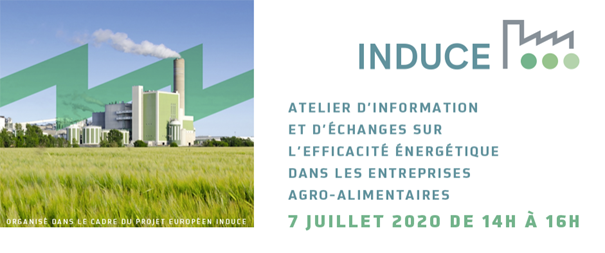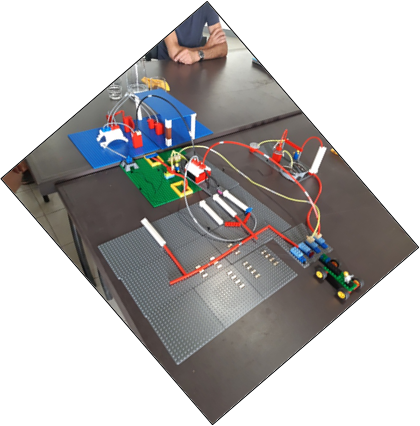28 Aug Information and discussion workshop on energy efficiency in agri-food companies
The French partners ACTIA (Technical Coordination Association for the Food and Beverage Industry), and CRITT PACA (Regional Center for Innovation and Transfer of Agro-food Technologies) of the INDUCE project organised an information and discussion workshop on energy efficiency in agri-food companies on July 7, 2020.
Done in an online format, due to the Covid-19 crisis, this event permitted to gather 25 people with different backgrounds: universities, technical research centres, ministries as well as energy managers of food industries.

This workshop was the occasion of presenting the INDUCE project and its aim of developing a capacity building programme for companies in the food and beverage sector which want to improve their energy performance, as agri-food companies are among the largest consumers of energies for heating, cooling processes and for storing food or beverages under controlled temperatures.
The emphasis was then put on the specificities of the INDUCE methodology, based on the study of organizational and behavioural models for influencing energy efficiency, which therefore aims at a change of culture and environment at the heart of the company in order to better involve employees and have sustainable results.
In France, the partners choose indeed to develop and run trainings with a playful collective intelligence pedagogy using construction games. They encourage sharing and allow solutions to emerge to improve energy efficiency by combining the viewpoints of different departments within the same company (maintenance, production, etc.). This construction approach is accessible to all hierarchical levels from general employees to the company managers. It stimulates several skills such as taking initiative and problem-solving. It also removes barriers to written communication (no recourse to writing) or oral communication (once constructed, the idea is easier to describe).
The concept of collective intelligence is based on teamwork where a collective of individuals aims to achieve a common and shared goal, combining the efforts of each individual, and where interactions between people are the cornerstone of the approach, combining analytical and analogical thinking with creativity.
These trainings were held in two of the three pilot companies involved in the project, from diverse sectors and with different sizes:
- Compagnie des Pâtissiers (pastry company, 75 employees)
- François DOUCET Confiseur (confectionery, 60 employees)
- Sylla (wine cellar, 5 employees)
The workshop was the occasion to highlight the advantages of this method, whose great strength results from the fact that many people in the company are involved, from all scales, operator to the manager. Subsequently, this facilitates the effective implementation of the changes, even if reluctant to change always exists.



